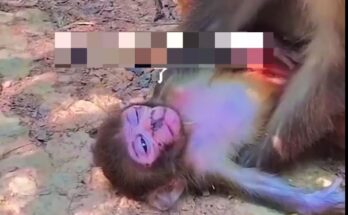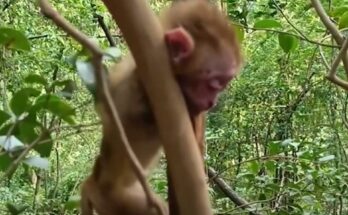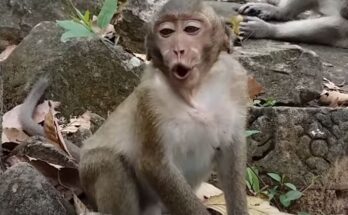In the heart of the jungle, where life is dictated by the unyielding forces of nature, a mother monkey cradles her lifeless baby. Her sorrow is a poignant reminder that grief is not exclusive to humans. Animals, too, experience deep emotional bonds, and the loss of an infant can be devastating.
For primates, especially species like macaques, baboons, and langurs, the mother-infant connection is profound. A newborn is not just a source of joy but also a fragile responsibility. The mother dedicates herself to nurturing, protecting, and teaching her offspring the essential skills for survival. However, the wild is unpredictable and often cruel. Infant monkeys face numerous threats—predators, harsh weather, illness, and even accidental falls. When tragedy strikes, the mother is left in silent agony.
Observations of grieving primates show heartbreaking behaviors. Some mothers carry their deceased infants for days, refusing to let go, as if hoping for a miracle. They groom the lifeless body, press it close to their chest, and exhibit signs of distress—whimpering, avoiding their troop, or becoming unusually aggressive. This behavior mirrors human mourning, revealing the depth of maternal attachment.
Though nature eventually compels the mother to move on, the process is neither quick nor painless. She may slowly detach, leaving the tiny body behind, or continue to revisit the site of loss. Researchers suggest that such grief responses indicate emotional intelligence and social bonds similar to those seen in humans.
A mother monkey’s grief is a tragic yet powerful testament to the universal nature of love and loss. In the dense foliage of the wild, her pain lingers—a silent but profound echo of motherhood’s enduring devotion.


